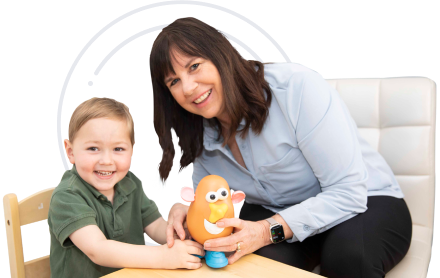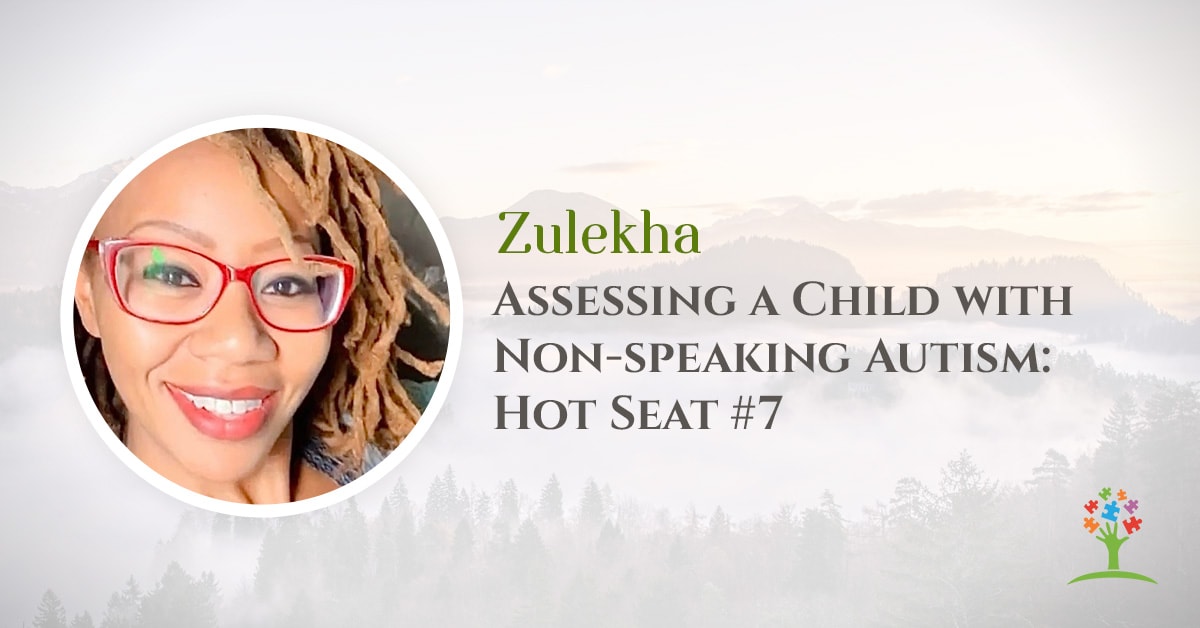Assessing a Child with Non-speaking Autism: Hot Seat #7 with Zulekha
Want to Learn how to Increase Talking & Decrease Tantrums in Children with Autism or Toddlers Showing Signs?
Want to start making a difference for your child or clients?

Autism TikTok Moms
Assessment for Autism
In-Home ABA
Because of Zulekha’s and her family’s mountain location, an ABA provider works with her son at home. This brings on challenges of the younger brother wanting to be involved, and herself wanting to break away and give her son independence with the provider. Zulekha also discusses activities that her son has become familiar and bored with. I provide suggestions on how to expand these activities as well as pair the provider and the child so that the mom doesn’t need to be present for services.
Stay tuned for Part 2 of this episode where Zulekha and I dive into safety concerns for self-injurious and problem behavior.

Zulekha on the Turn Autism Around Podcast
Zulekha W is a mother to a 4year old autistic non speaking son. Zulekha provides support to parents of autistic children and resources through her TikTok posts. She posts TikTok videos on how she helps her autistic son gain new skills and increase his communication as an AAC learner. Zulekha has a master’s degree in clinical mental health counseling and has taken the courses for parents along with reading the book, Turn Autism Around.
You’ll Learn
- The impact of the Autism TikTok Community.
- Receiving Autism Services and ABA in Rural Area.
- Reviewing Key Questions and information from the One Page Assessment.
- Important Potty Training Tips for Young Boys with Autism.
- Is your child constipated?
- Can excessive chewing and drooling be a medical concern?
- Expanding on basic activities like Mr. Potato Head and Inset Puzzles in ABA.
- Handling meltdowns and pairing in home ABA providers.
Resources
- Diagnosing Autism During COVID19 Pandemic | Interview with Dr. Catherine Lord
- Autism TikTok- Parenting Without Power Struggles with @thefamilybehaviorist
- Turn Autism Around, Online Autism Assessment: Try It Now!
- Autism Success Story with Michele C.
- Autism Case Study with Michelle C : From 2 Words to 500 Words with ABA Online Course
- In Home ABA Therapy vs. ABA School: Which is Better?
- A Story of Hope: Reducing Autism Self Injury, Autism Homeschooling, and Lessons Learned with Kelsey General
- Solving Speech Delays in 4-year-olds and Autism Denial: Hot Seat #6 with Vikram
- Programming for Intermediate Learners: Hot Seat with Swethana
- How To Help Your Toddler Talk! Hot Seat #4 with Elissa
- Does Your Young Child Have Autism or Signs of Autism? Take the 10 Minute Assessment!
- Navigating Autism : Failed M-Chat Score, Toddler Headbanging, and Parent Led Therapy with Kelsey General
- Potty Training and Constipation with Dr. Steve Hodges
- Should You Use Chew Toys for Kids with Autism?
- Pica and Autism: Mouthing of Things in Children
- Workshops
- Mary Barbera on Facebook
- Mary Barbera on TikTok
- Mary Barbera on Instagram
Want to Learn how to Increase Talking & Decrease Tantrums in Children with Autism or Toddlers Showing Signs?
Want to start making a difference for your child or clients?
